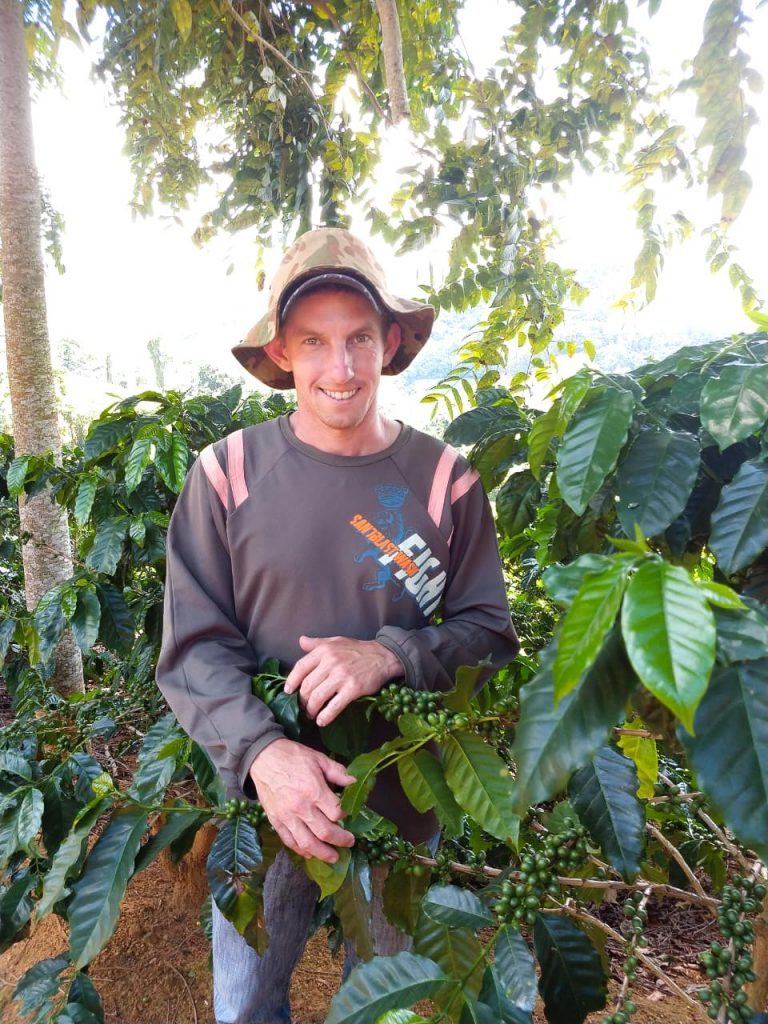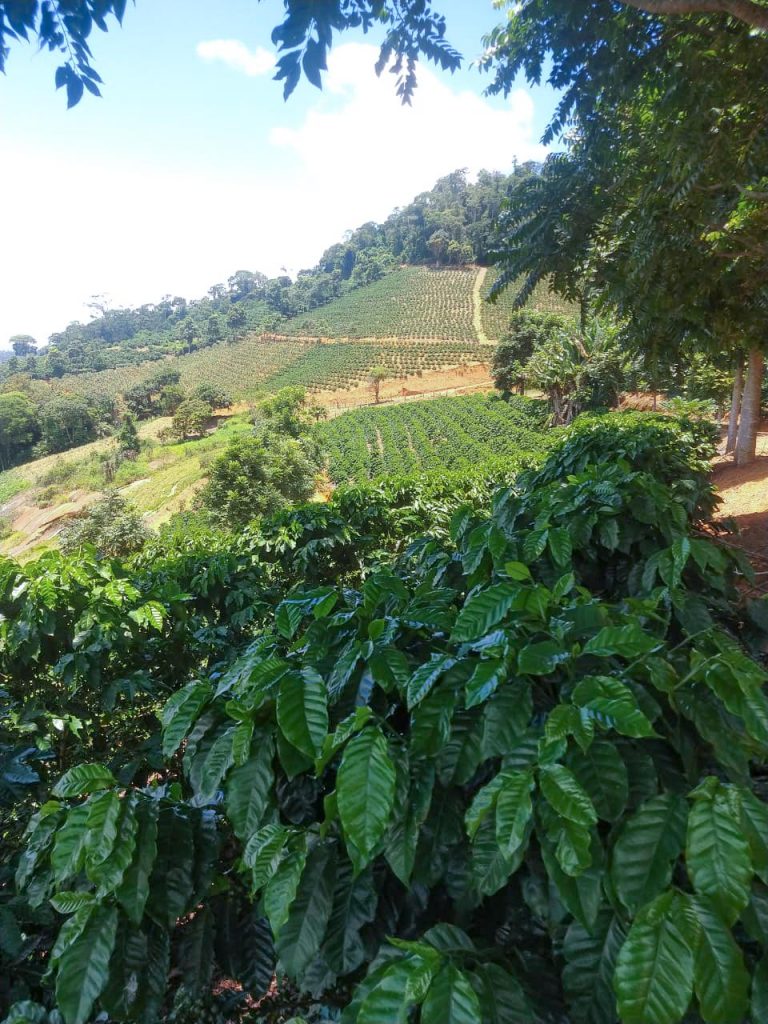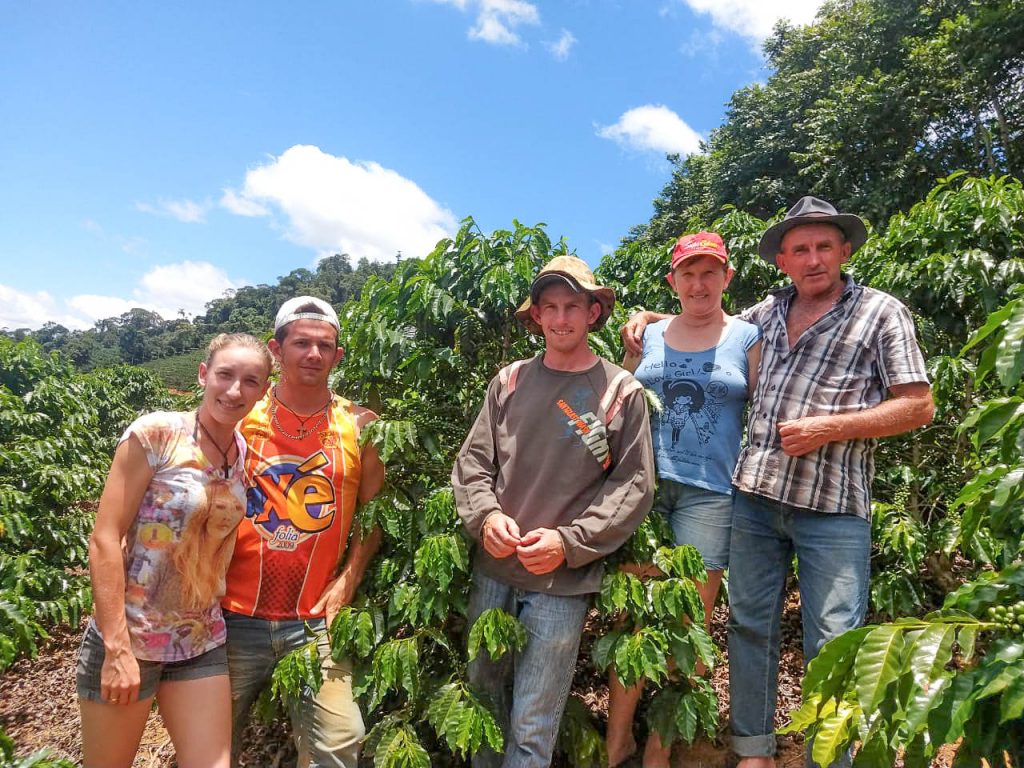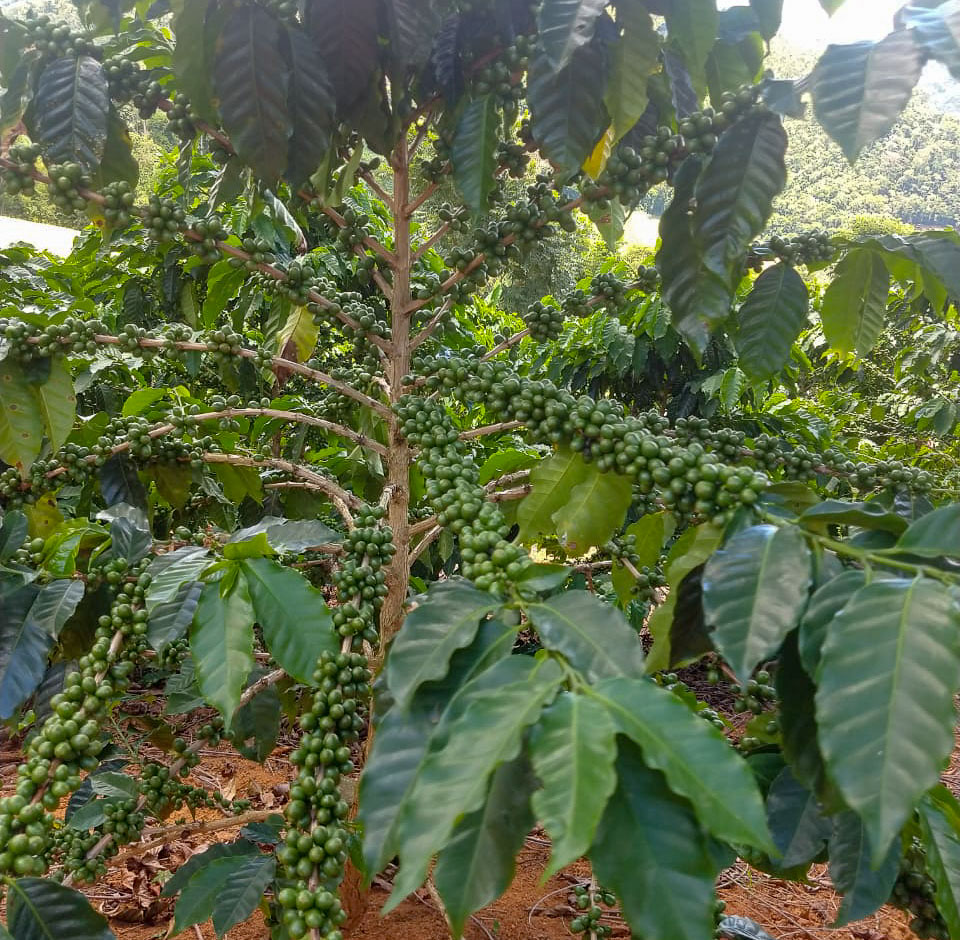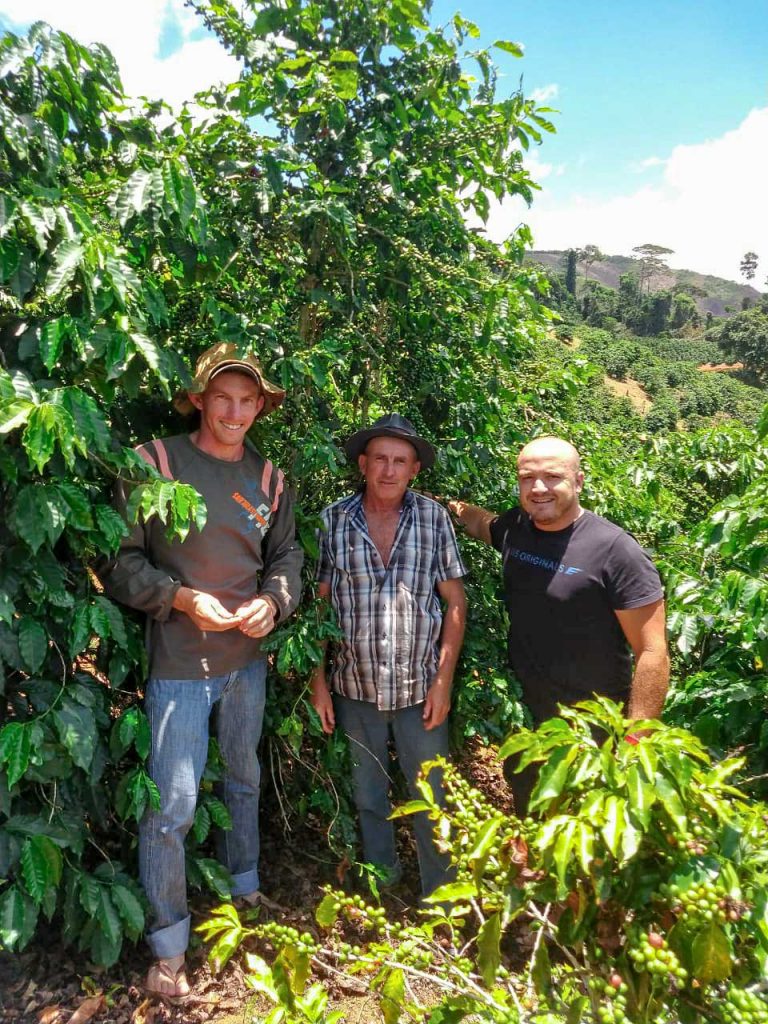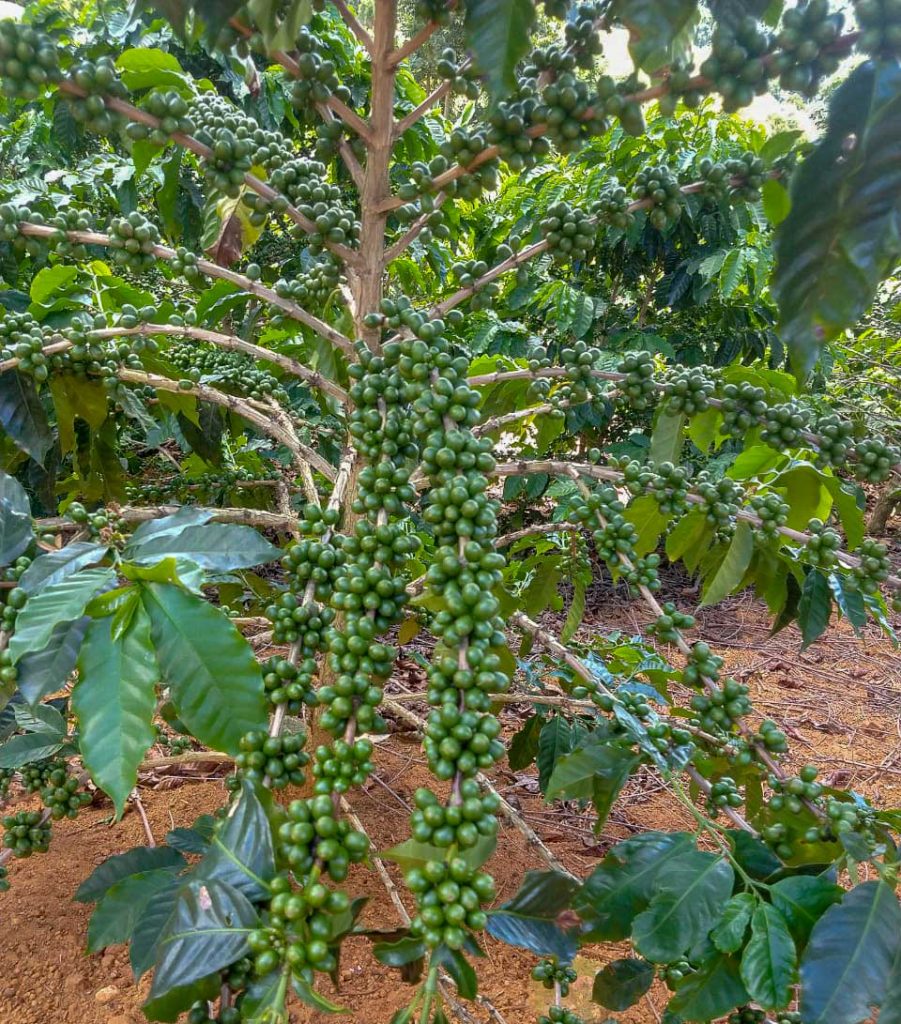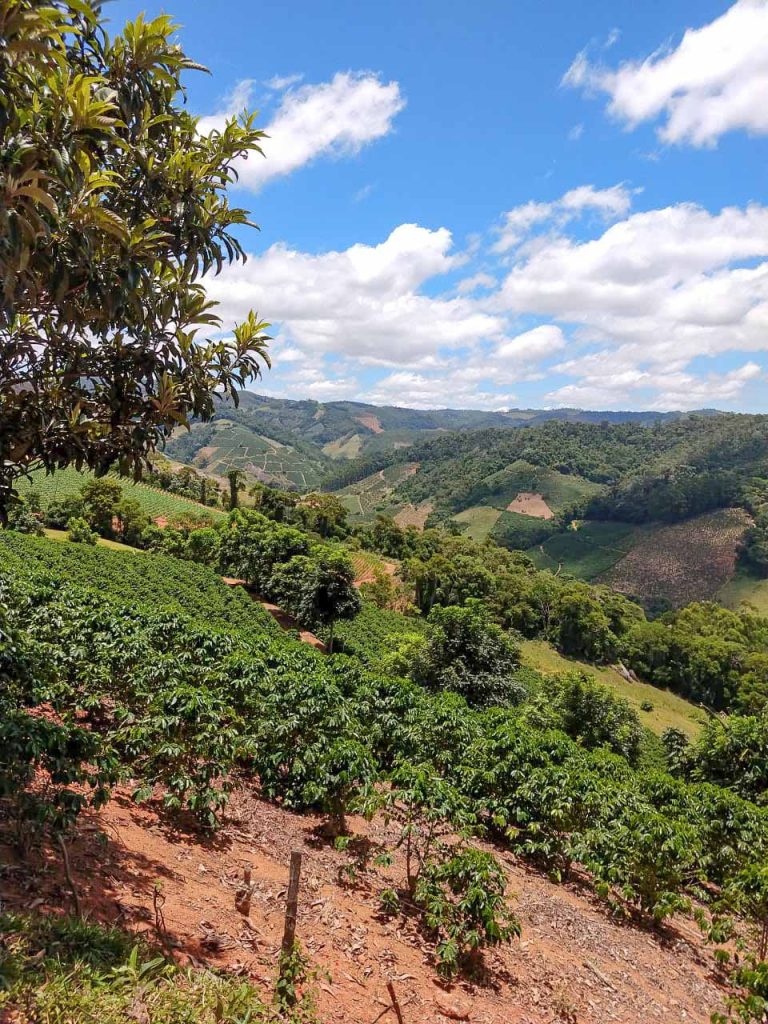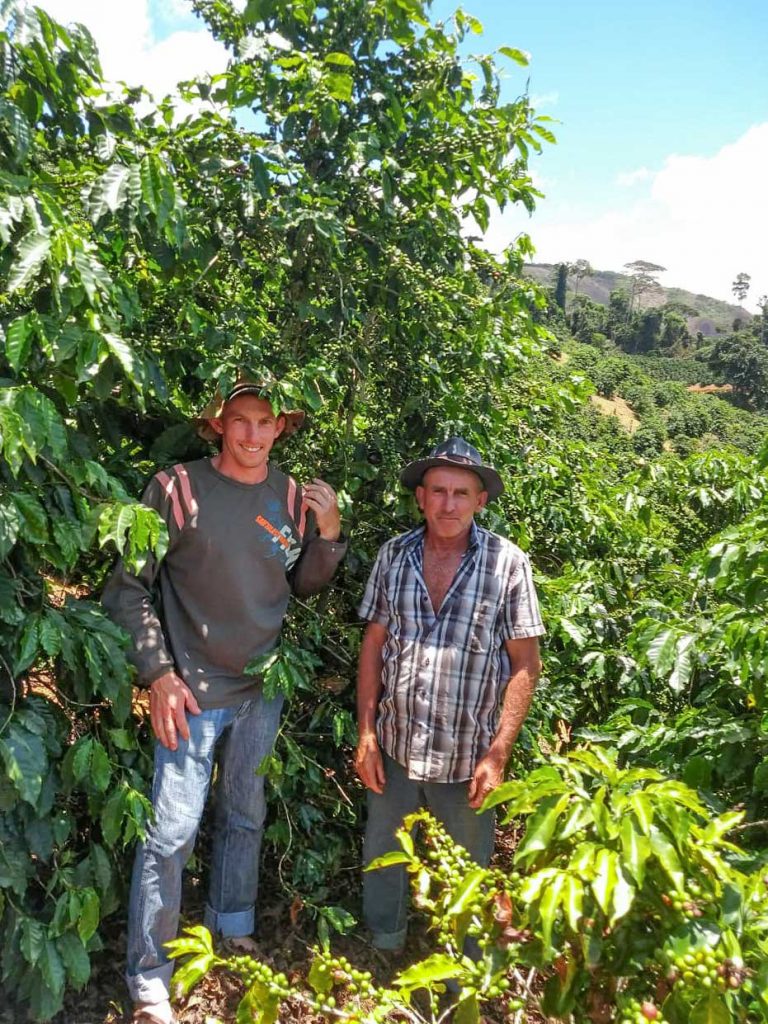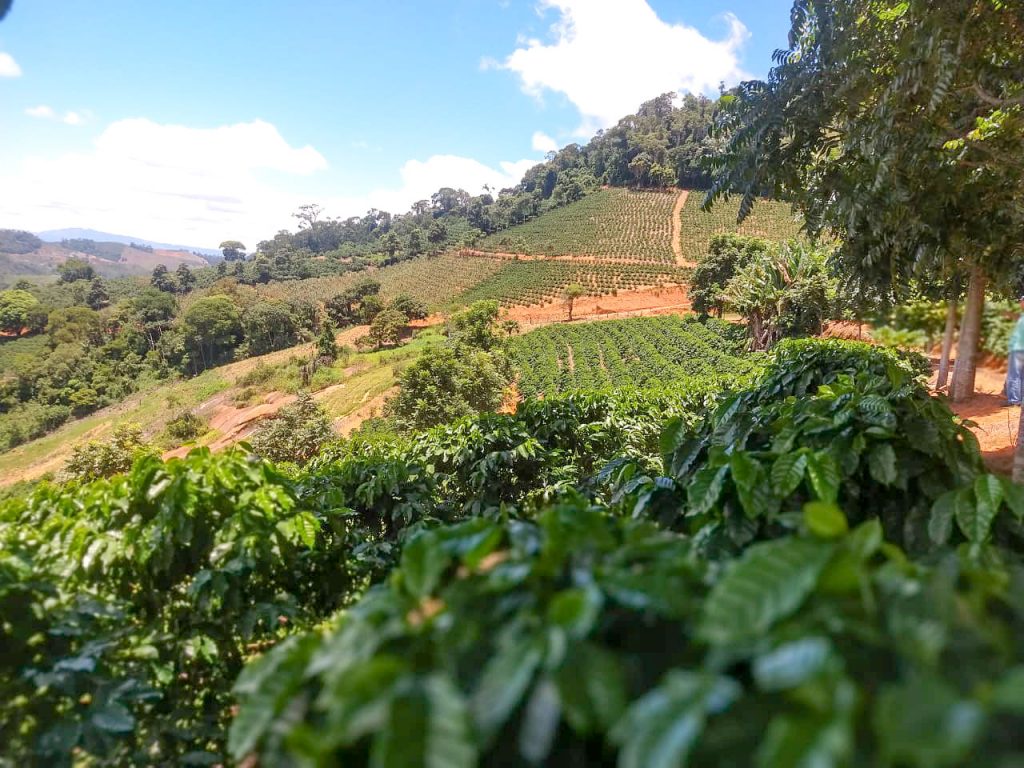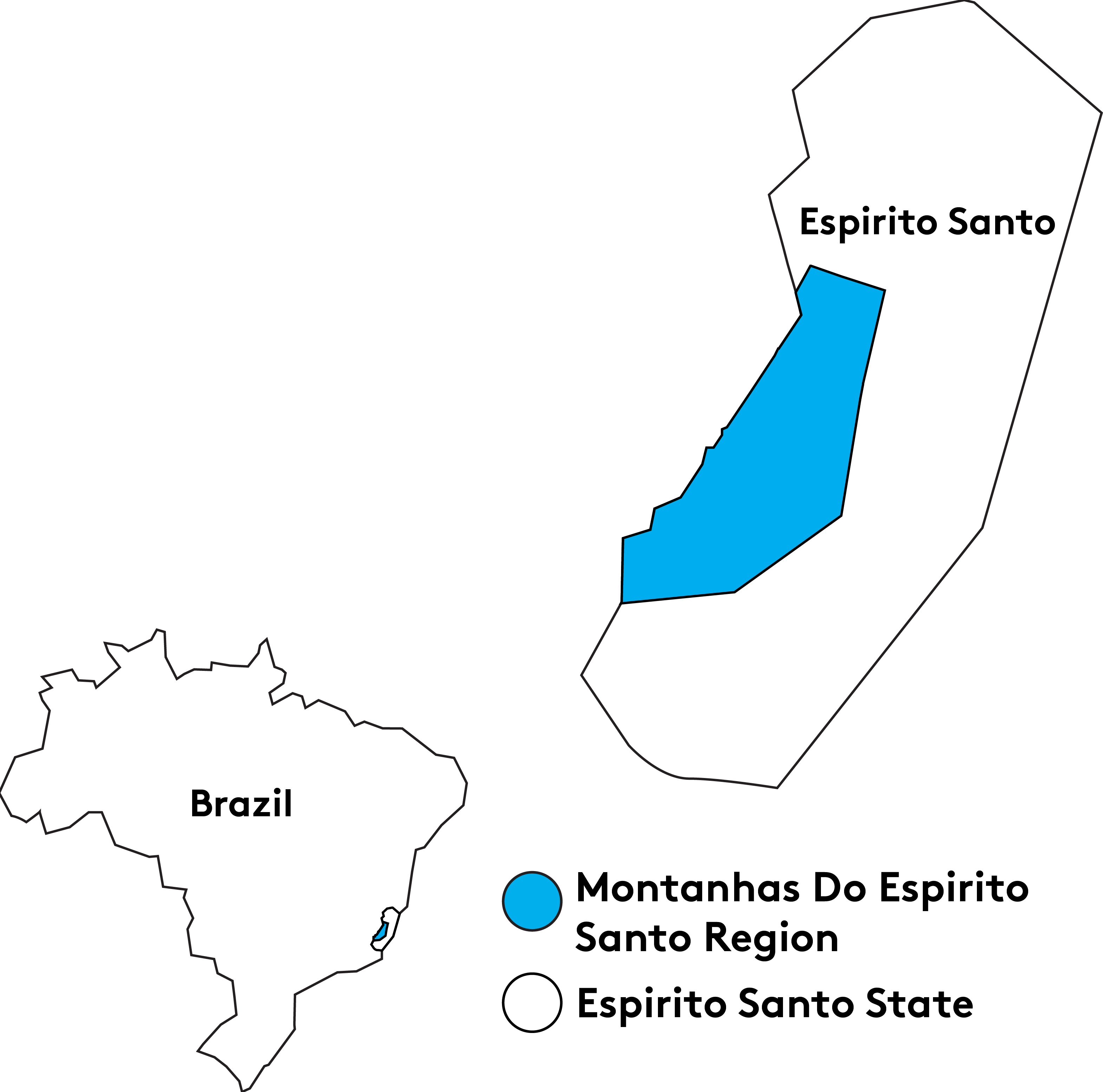Luciano Herzog is a descendant of Pomeranians from the area that is now Poland and Germany. He makes up part of the third generation of coffee producers in his family. His grandfather, Mr. Ricardo, was the one who first worked the land that today has its principal activity in coffee cultivation.
Luciano grew up watching his father, Mr. Rodolfo Herzog grow coffee, and from him learned much about how to manage production. Around 1975, Luciano and his siblings together began to depulp their coffee, but at this time there was not much incentive for this kind of project.
In 1991, Luciano married Nilza Braum and inherited part of her father’s land, where he expanded his coffee farm, and continued growing the property by purchasing his brothers’ and his sisters’ coffee plots.
Around 2006, Luciano returned to the initiative his father had started and began depulping coffee using his neighbor’s equipment. Through the added value of the improved coffee quality, he purchased his own equipment in 2008 and from their he and his children began a full-scale quality improvement initiative, which led him to win the the top prize for best coffee in the municipality of Itarana.
Sitio Nilza is located in the Alto Jetibocas community of Itarana and grows coffee on 17 of the farm’s 29 hectares. The property’s elevation ranges from 850-1000 meters above sea level and the coffee flowers from October to December for the harvest from June to August. The farm grows Catucaí, Bourbon, and Yellow Catuaí in addition to the Red Catuaí selected for this lot.
